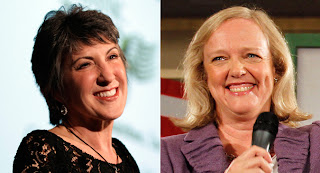In a remarkable display of judicial radicalism, the U.S. Supreme court ruled 5-4 to legalize the unlimited participation of billion dollar corporations in bankrolling politicians.
The ruling, Citizens United v. Federal Election Commission, overruled two precedents: Austin v. Michigan Chamber of Commerce (1990) and McConnell v. Federal Election Commission (2002).
On this issue the U.S. Supreme Court has taken action more radical than

any other court in U.S. history.
Here are the 2 arguments being made in support of the ruling:
1)
The "middle class" argument - Proponents of this line of reasoning say that today only rich candidates bankrolling themselves can win in U.S. politics and so by allowing corporations to bankroll less well off candidates this decision is restoring democracy. But what about the influence and hold that these billion dollar corporations will have on candidates they've backed with cash? It seems to me that the real problem here is our system of financing of elections. Rather than have corporations bankroll our democracy, why not remove all private money and have 100% public financing for election? Now that would really level the playing field between rich and poor and return government policy-making to the people.
2)
The "First Amendment" argument - This argument is popular among right-wing thinkers and was used by the Supreme court Justices in their 5-4 decision. They argue that the First Amendment applies to corporations and that money is a form of free speech. Here's what the First Amendment actually says:
"Congress shall make no law respecting an establishment of religion, or prohibiting the free exercise thereof; or abridging the freedom of speech, or of the press; or the right of the people peaceably to assemble, and to petition the Government for a redress of grievances."It always amazes how conservative jurists can switch from following the exact text to being expansive in their reading of the Constitution when they want to be.
I have to believe that the framers of the constitution were not oblivious to money matters and that if they had wanted to they could have made the First Amendment specifically include money as a right in elections, not just "the freedom of speech".
Bad Supreme Court decisions don't stand that test of time. Who today would agree with Plessy v. Fergusson? Citizens United v. Federal Election Commission will come to be remembered as the decision made by 5 right-wing Justices out of step with where American democracy stood in 2010.
It is also the case that while U.S. corporations can be fined and their executive sent to jail for bribing foreign officials (see: Foreign Corrupt Practices Act), they have a free ride when it comes to bribing domestic ones.













